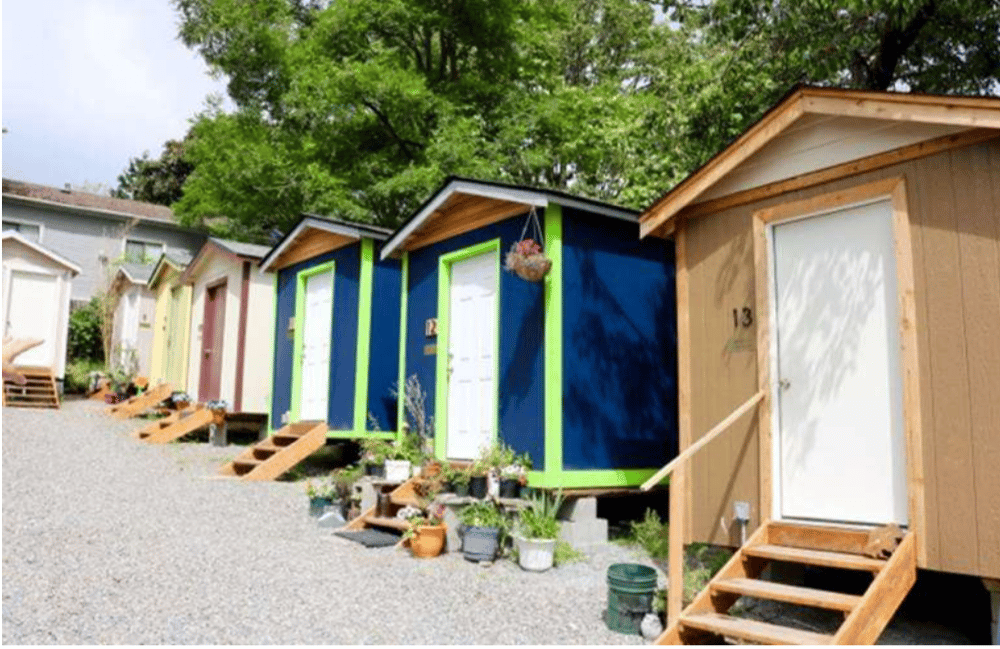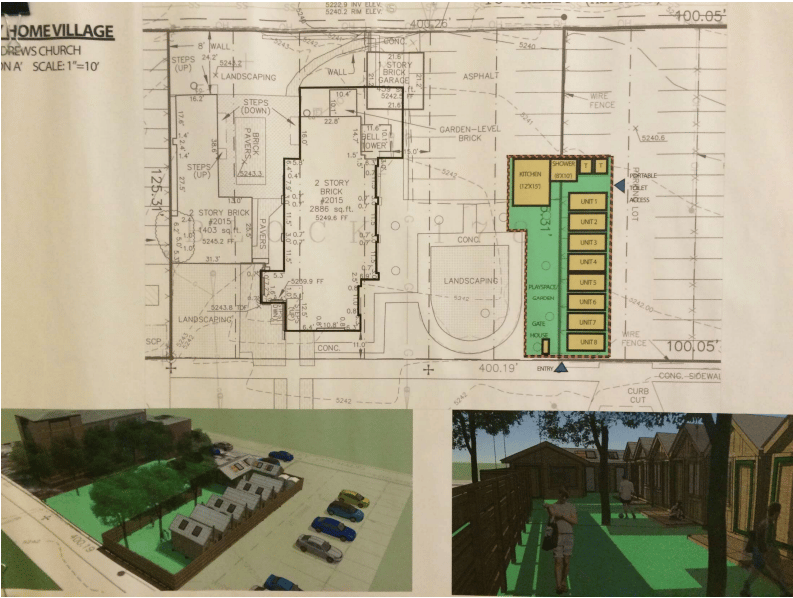The idea of building tiny houses for homeless people has not gone smoothly in the past. Remember those 10 people who were arrested last year for setting some up in a Denver park?
St. Andrew's Episcopal Church, however, is ready to make its own attempt: The church has proposed to build eight tiny houses on its campus just east of downtown in Five Points, and it says that's allowed by federal law.
Community meetings about the idea are being held this week and next – read on for more.

"Our church is located in the core - we are literally blocks away from the rescue mission, blocks away from Catholic Charities," said Allyson Dodge, a member of the St. Andrew's lay leadership group. "Our church is in the epicenter of where homeless live in downtown Denver."
St. Andrew's has been sheltering 20 women in its basement on Friday nights. Now it has announced its idea to build a temporary community, complete with a 24-hour security station and a privacy fence. The village would stand on pavement just northeast of the church building, on church property.
Eight insulated and heated homes, measuring 96 square feet each, could house up to eight people, according to the church's plans. Residents would establish and enforce rules for the community.
"We can make a huge statement. This will be a first for Denver, and it is our intent to encourage other churches to follow our lead," the church says in a presentation published on its website.

The plan is modeled after a similar village in Seattle.
In fact, Seattle's Low Income Housing Institute suggested that St. Andrew's look into the idea, according to Dodge.
If it happens, the village would be staffed by the Delores Project and built in collaboration with the community design center Radian Inc. and the jobs-training nonprofit Colorado Construction Institute.
The church hopes to open the village early in 2017. Planners are in the process of informing city officials about the proposal.
"Federal law allows a church to erect a village like this," according to the church's proposal. The church and its partners still are not sure which local approvals they would need or how they'll handle it, according to Dodge.
"We haven’t met with the right city official yet. We just don’t know," Dodge said.
The church's presentation does note that it will need permits to run water and electricity from its building to the village. The city hasn't yet received any applications, a spokesperson reported.
St. Andrew's will hold neighborhood meetings about its plan.
First, church leadership brought the idea to St. Andrew's parishioners. It wasn't a "slam dunk," Dodge said, but there was general agreement that the village lines up with the church's values.
Now the planners are taking their idea to its neighbors and others.
"We will continue this process as long as we need to. This is a thoughtful, prayerful process," Dodge said. "We are not rushing it, and we do not want anybody else to feel rushed as well."
The community meetings will happen:
- 6 p.m., Wednesday, Sept. 21 at Radian Inc. 2701 Lawrence Street, Unit 10, Denver, 80205
- 6 p.m. Wednesday, Sept. 28 at Fluid Coffee Bar. 501 East 19th Avenue, Denver, 80203
Relevant:
In Seattle, Mayor Ed Murray has actively supported the construction of tiny villages.
A church in St. Cloud, Minnesota sued its local government last month for the right to keep a tiny house for a homeless person on campus. That church argued that it was practicing its religion, and cited a federal law.
In Boulder, the city ordered Congregation Har HaShem to stop allowing a small number of homeless people to camp on the institution's property because camping wasn't an allowed use under the zoning.
The city eventually relented in 2012, when the synagogue argued the camping was an "accessory use" to its primary religious mission. The legal arguments were limited to the zoning code.











